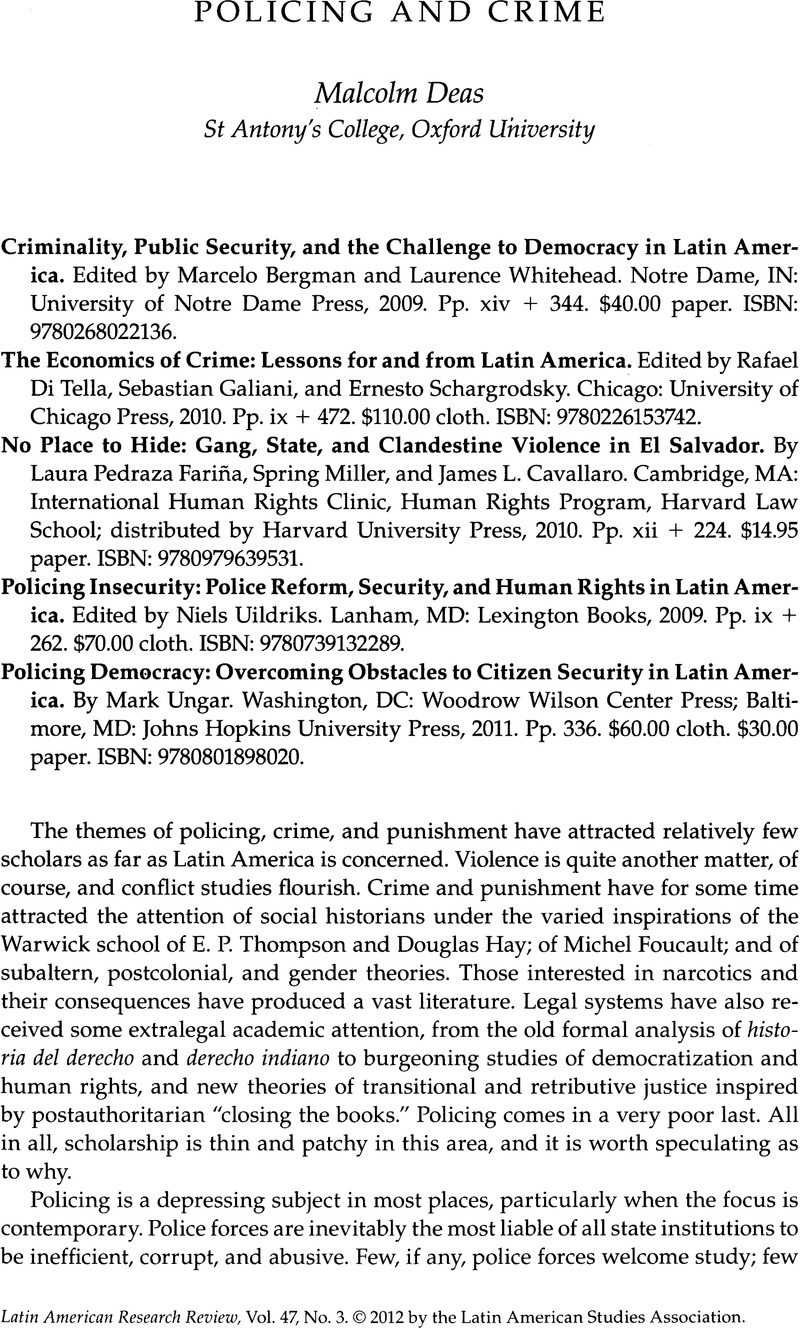Article contents
Policing and Crime
Review products
Published online by Cambridge University Press: 05 September 2022
Abstract

- Type
- Review Essays
- Information
- Copyright
- Copyright © 2012 by the Latin American Studies Association
References
1. María Victoria Llorente, “Demilitarization in Times of War? Police Reform in Colombia,” in Public Security and Police Reform in the Americas, ed. John Bailey and Lucia Dammert (Pittsburgh: University of Pittsburgh Press, 2005), 111-131; Juan Carlos Ruiz Vásquez, “Colombian Police Policy: Police and Urban Policing, 1991-2006” (D. Phil, thesis, Department of Politics and International Relations, Oxford University, 2009).
2. Niels Uildricks is also author, with Nelia Tello Peón, of Mexico's Unrule of Law: Implementing Human Rights in Police and Judicial Reform under Democratization (Lanham, MD: Rowman and Littlefield Publishers, 2010), reviewed by Jon Shefner, “Development and Democracy in Mexico,” Latin American Research Review 47, no. 1 (2012): 196.
3. Alexander Stille, Excellent Cadavers: The Mafia and the Death of the First Italian Republic (London: Vintage, 1996), details how antimafia squads were organized in Sicily and on occasion betrayed by corrupt judicial authorities in Rome.
4. Myriam Jimeno, Ismael Roldán, David Ospina, Luis Eduardo Jaramillo, José María Calvo, and Sonia Chaparro, Las sombras arbitrarias: Violencia y autoridad en Colombia (Bogotá: Editorial Universidad Nacional, 1996).
5. Ibid.
6. A similar note is sounded by Ungar and Ana Laura Magaloni in regard to the results of recent judicial reforms: “When asked who was in charge of the court hearings, only 8 percent of [prison] inmates identified the judge (51 percent chose the court clerk, 20 percent the prosecutor, and 21 percent the typist)” (Bergman and Whitehead, 243).
7. Stephen Haber, Noel Maurer, and Armando Razo, The Politics of Property Rights: Political Instability, Credible Commitments and Economic Growth in Mexico, 1876-1929 (Cambridge: Cambridge University Press, 2003), 10.
- 1
- Cited by




